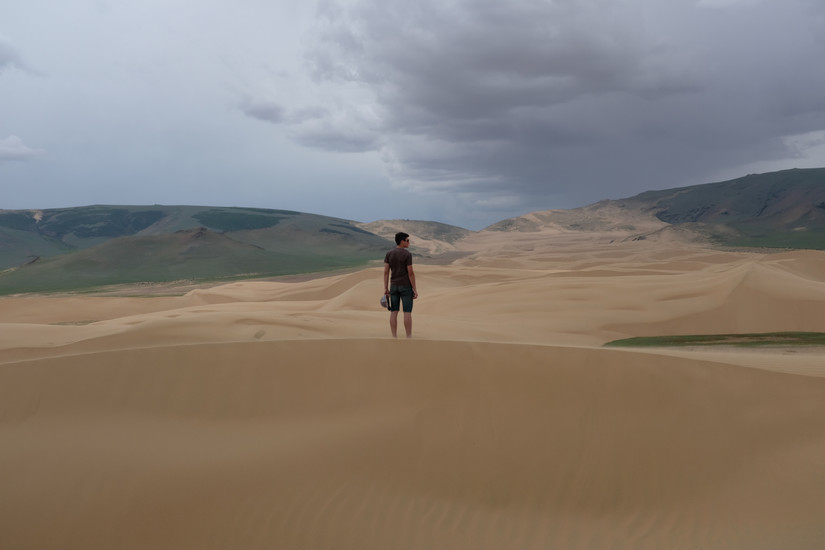Solitude
Posted by Annika Furman on Jun 7th 2019
When in the Mongolian steppe, the paradox of serene solitude becomes more than a page read in Endurance. Solitude, the concept that someone can be completely alone, feels inconceivable when in an American city. Coloradans get glimpses of solitude when in the backcountry, but in a matter of hours, a hiker can be enjoying a latte at Starbucks. In Mongolia, solitude permeates the steppe; you can drive a full day and only see smoke extruding from the cylindrical pipe of a ger.
A mans happiness lies in an empty field
~ Mongolian Proverb
When in the Mongolian steppe, the paradox of serene solitude become more than a page read in Endurance Magazine. Solitude, the concept that someone can be completely alone, feels inconceivable when in an American city. Coloradans get glimpses of solitude when in the backcountry, but in a matter of hours, a hiker can be enjoying a latte at Starbucks.
In Mongolia, solitude permeates the
steppe; you can drive a full day and only see smoke extruding from the
cylindrical pipe of a ger. The paradox is that you truly never feel alone.
Having endless space to let your eyes meander and observe, allows you to see
the beauty and details in solitude. With each missing building and road sign,
there is space for a misplaced boulder or windswept eagle; the beauty of the
known ignites the imagination. We have time to think about why an enormous lake
exists among kilometers of green and purple hills, or how herders keep track of
unbranded mobs of goats.
In the city, these details are replaced by routine and normality. Humans hide from solitude seeking comfort in numbers; however, herders on the Mongolian Steppe find purpose while breathing fresh air. Most herders are born into a lifestyle surrounded by endless fields and rolling hills. When driving on bumpy dirt roads in the middle of nowhere, you often come upon children no older than 12 playing on their own. Mongolian children learn from the boundless oasis, a playground of infinite opportunity. At an extraordinarily young age, maybe four or five year old, Mongolian children learn to ride. Once they have mastered this skill, they take their horse and go into the steppe to find their herds grazing. The responsibility put upon Mongolian children to completely work alone, and do it diligently, embeds a sense of maturity and purpose.
Because Mongolian children learn responsibility through observation and reliability, they see the endless Steppe as a place of opportunity, not a place of isolation. They do not have a fear of the unknown; they only have a desire for independence and through independence, they find purpose. Thus, continuing their family occupation, moving to the city to obtain an education, or choosing a different path, are all welcome as an opportunity.
Hangai Mountain Textiles fosters this same desire for solitude and exploration. Their purpose as a company is to make authentic products produced in Mongolia that embody the spirit of its people. With every woven thread, there is a sense of the Mongolian people and their serene independence.
Written by Annika Furman
Annika Furman is currently a student at Colorado College. She travelled with founders Bill and Betina across Mongolia meeting herders and experiencing the culture of the vast steppe meanwhile gathering stories and insight.
Photo By Julia Moore

